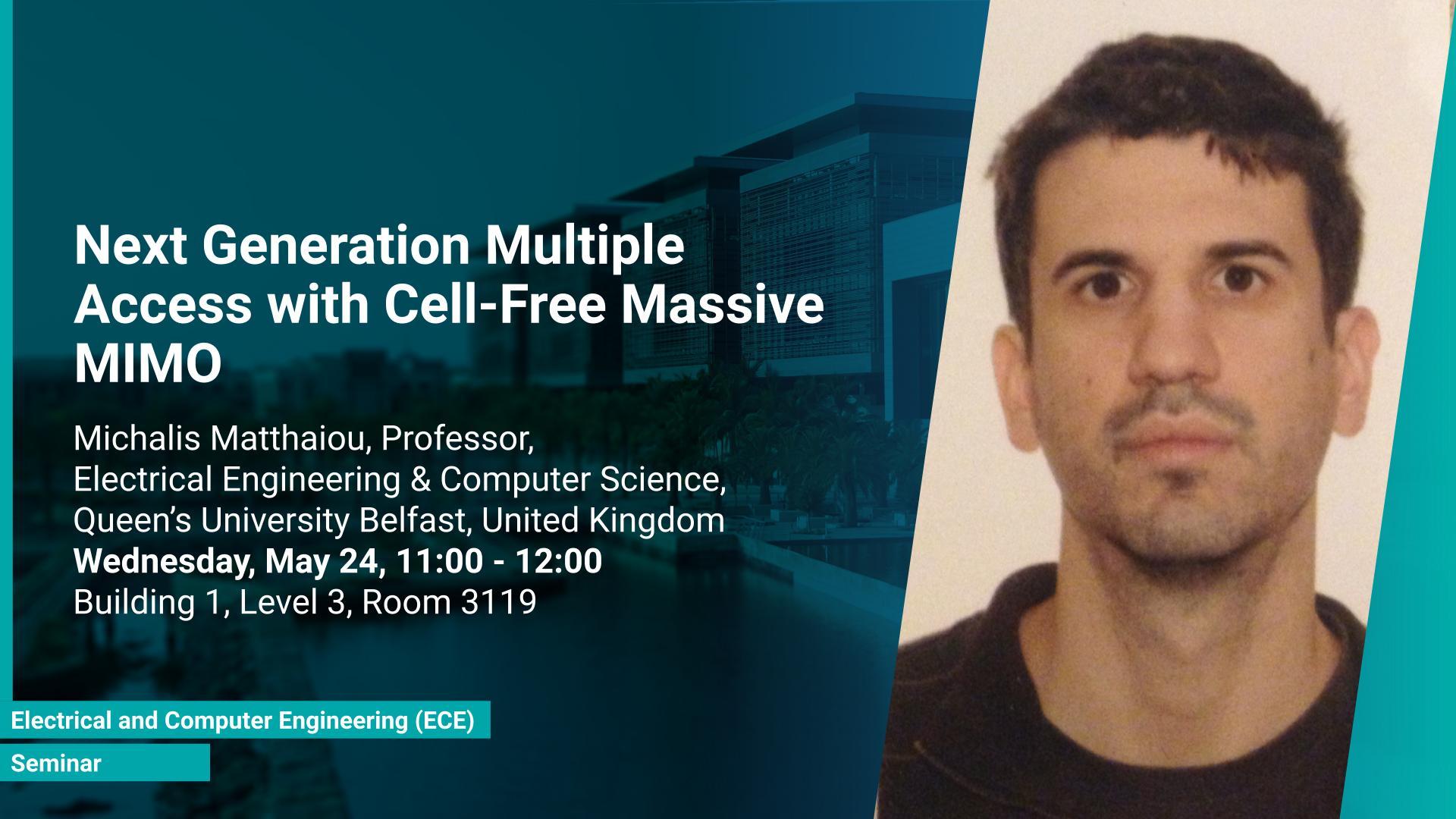Abstract
The next generation multiple access (NGMA) techniques are expected to achieve massive and ubiquitous access for a large number of devices and provide high spectral efficiency in ultra-dense networks. To meet these unprecedented mobile traffic demands, a paradigm shift from the conventional cellular networks towards distributed communication systems is required. Cell-free massive multiple-input multiple-output (CF-mMIMO) is considered as a practical and scalable embodiment of the distributed/ network MIMO systems, which inherits not only the key benefits from colocated massive MIMO systems, but also the macro-diversity gain from the distributed systems. In this paper, we provide an overview of current research efforts on the CF-mMIMO systems and their promising future application scenarios. Then, we elaborate on the new requirements for CF-mMIMO networks and propose a unifying framework for NGMA based on virtual full-duplex and CF-mMIMO.
Brief Biography
Michalis Matthaiou is the Chair Professor of Communications Engineering and Signal Processing and Deputy Director of the Centre for Wireless Innovation (CWI) at Queen’s University Belfast, U.K. Dr. Matthaiou and his coauthors received the IEEE Communications Society (ComSoc) Leonard G. Abraham Prize in 2017. He currently holds the ERC Consolidator Grant BEATRICE (2021-2026) focused on the interface between information and electromagnetic theories. He was awarded the prestigious 2018/2019 Royal Academy of Engineering/The Leverhulme Trust Senior Research Fellowship and also received the 2019 EURASIP Early Career Award. His team was also the Grand Winner of the 2019 Mobile World Congress Challenge. He is currently the Editor-in-Chief of Elsevier Physical Communication, a Senior Editor for IEEE Wireless Communications Letters and IEEE Signal Processing Magazine, and an Associate Editor for IEEE Transactions on Communications. He is an IEEE Fellow.
